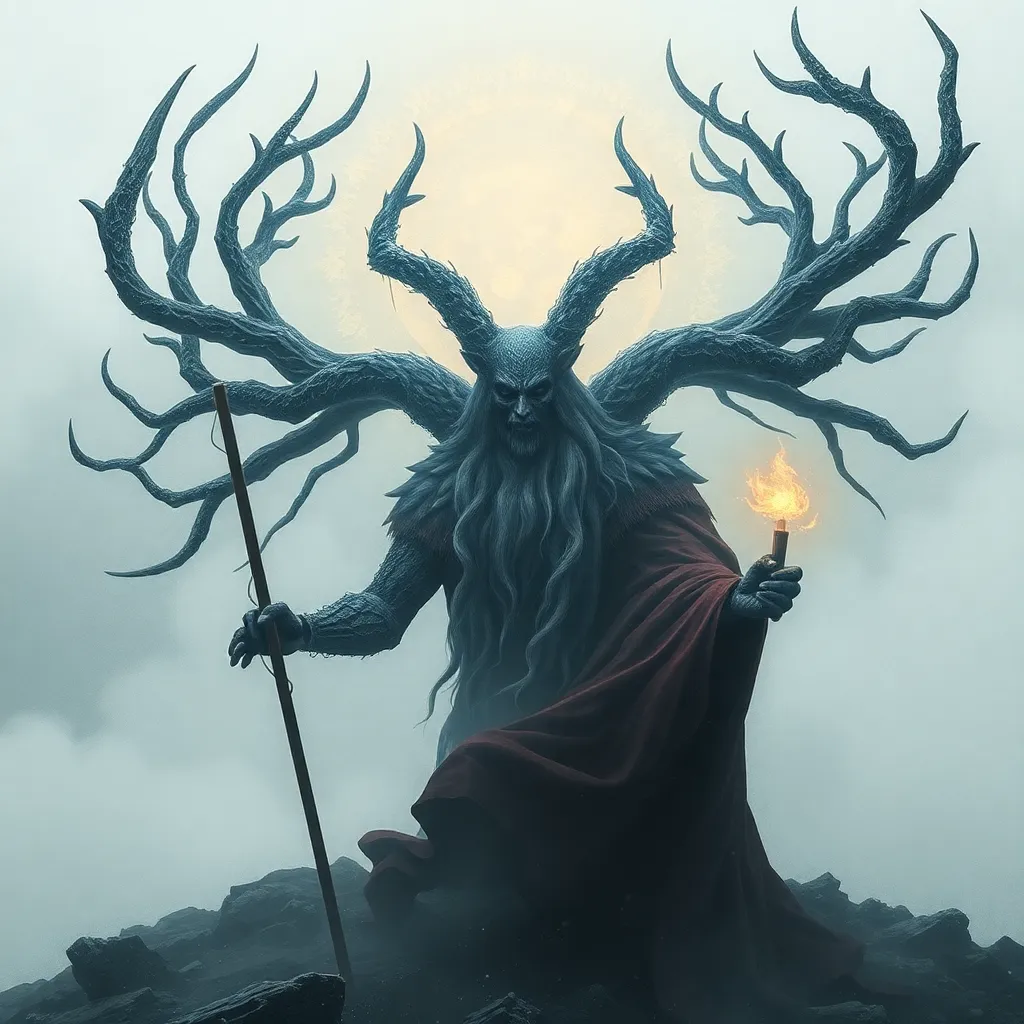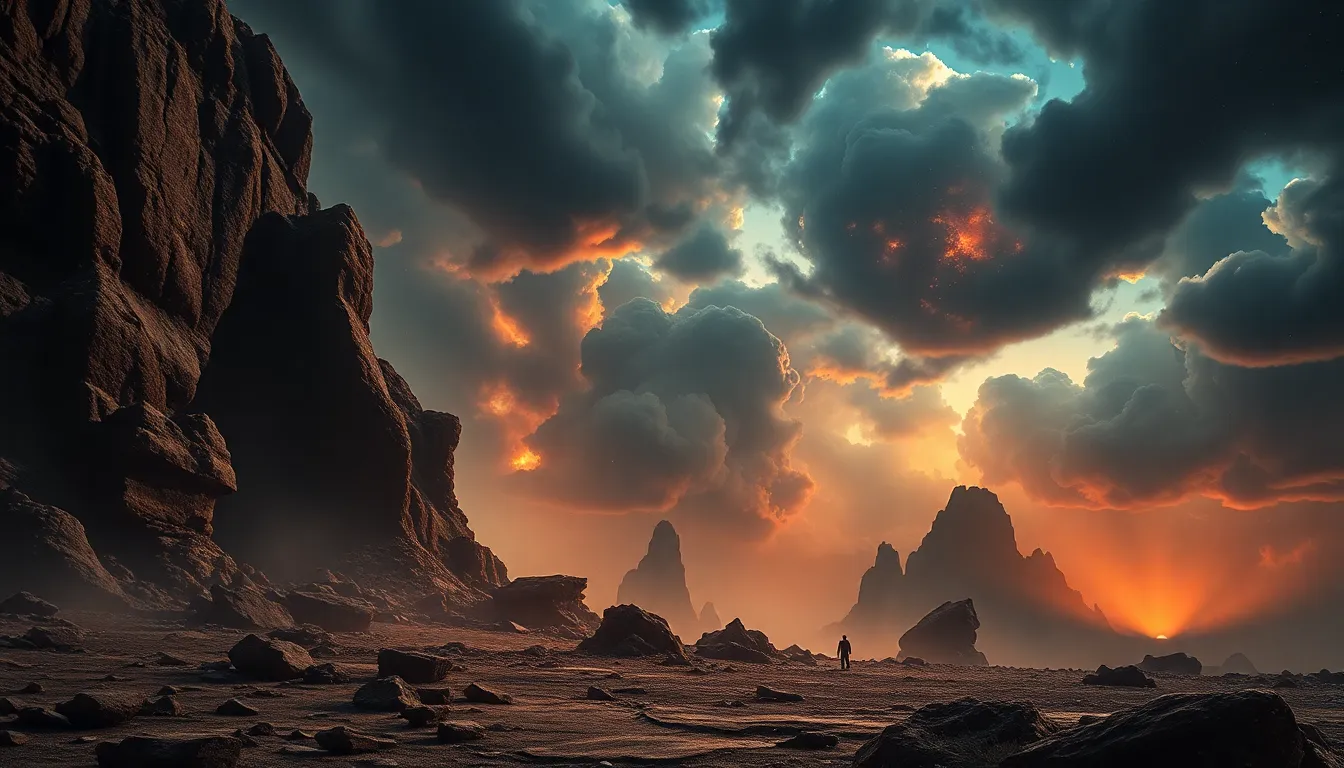The Most Compelling End of the World Myths You Need to Know
1. Introduction: The Allure of Apocalypse
Throughout history, humanity has been captivated by the concept of the end of the world. This fascination is not merely a passing curiosity; rather, it reflects deep psychological and cultural significances. Myths of apocalypse serve as a canvas on which societies project their anxieties, hopes, and moral lessons. They embody our fears of the unknown and our desire for renewal, often offering a narrative framework to understand existential threats.
2. Ancient Civilizations and Their Doomsday Predictions
Many ancient cultures had their own interpretations of doomsday, often intertwined with their cosmologies and religious beliefs. Here are a few notable examples:
- Mayan Civilization: The Mayans had a complex calendar system that many interpreted as predicting the end of the world in December 2012. This led to widespread panic, despite the Mayans themselves likely not viewing it as an apocalyptic date.
- Egyptians: The ancient Egyptians believed in a cyclical view of time, where the world would end and be reborn. Their myths often involved gods battling chaos, reflecting their understanding of life and death.
The 2012 phenomenon sparked a global conversation about the Mayan calendar, showcasing how ancient beliefs can be reinterpreted in modern contexts.
3. Religious Myths and Prophecies
Religious texts have long been sources of apocalyptic narratives. Various religions view the end of the world through distinct lenses:
- Christianity: The Book of Revelation contains vivid imagery of the apocalypse, including the Four Horsemen and the final judgment. Interpretations vary widely, with some viewing it as a literal prophecy and others as symbolic.
- Islam: In Islamic eschatology, the Day of Judgment is a significant event where individuals are held accountable for their deeds. The concept of the Mahdi, a messianic figure, plays a crucial role in this narrative.
- Hinduism: The cyclical concept of time in Hinduism includes the idea of Yuga—an age characterized by moral decline, leading to eventual destruction and renewal.
4. Modern Myths: The Role of Technology and Science
In our contemporary world, fears surrounding technological advancements have given rise to new doomsday myths. Prominent among these is:
- Artificial Intelligence: Concerns about AI surpassing human control have led to narratives of an impending technological apocalypse.
- Nuclear Warfare: The Cold War era fostered fears of mutual destruction through nuclear weapons, a concern that remains relevant today.
- The Y2K Scare: As the year 2000 approached, fears of widespread computer failures led to panic over potential societal collapse, illustrating how technological anxieties can manifest in apocalyptic predictions.
5. Environmental Catastrophes: Myths of Ecological Collapse
As climate change becomes an increasingly pressing issue, many myths have emerged regarding ecological collapse. These narratives often serve to galvanize action but can also lead to fear and despair:
- Climate Change Predictions: From rising sea levels to extreme weather events, predictions of an imminent ecological apocalypse often dominate discourse.
- The Role of Activists: Environmental activists and media play significant roles in shaping these narratives, sometimes leading to exaggerated perceptions of urgency.
6. Astrological and Cosmic Catastrophes
Celestial events have also been linked to doomsday predictions throughout history:
- Asteroid Impacts: The fear of an asteroid collision has led to numerous predictions of global extinction events, reminiscent of the dinosaurs’ demise.
- Solar Flares: Concerns about solar flares disrupting technology and causing widespread chaos have fueled apocalyptic fears.
- Planet X Theory: This theory suggests that a hidden planet could cause catastrophic gravitational effects on Earth, captivating the imagination of many.
7. Pop Culture and the Apocalypse
Movies, books, and video games have significantly influenced public perception of apocalyptic scenarios:
- “Mad Max”: This franchise portrays a dystopian future marked by societal collapse and resource scarcity, resonating with modern fears.
- “The Road”: A haunting narrative of survival in a post-apocalyptic world that explores the depths of human resilience.
- “The Walking Dead”: This series popularized the zombie apocalypse, tapping into themes of survival, community, and moral dilemmas in a collapsed society.
8. Survivalism and Prepper Culture
In response to end-of-the-world myths, survivalism has gained traction. Prepper culture emphasizes self-sufficiency and readiness for catastrophic events:
- Key Beliefs: Preppers often believe in the necessity of being prepared for various disasters, ranging from natural calamities to societal collapse.
- Practices: Common practices include stockpiling supplies, learning survival skills, and building community networks to ensure resilience.
9. Debunking Common Myths: Science vs. Speculation
It is essential to critically analyze popular end-of-the-world myths against scientific evidence:
- Scientific Evidence: Many doomsday predictions lack empirical support; for example, fears surrounding the Mayan calendar were based on misinterpretations.
- Importance of Critical Thinking: Encouraging critical thinking helps individuals differentiate between substantiated risks and speculative fears.
10. Conclusion: The Future Beyond Myths
The impact of end-of-the-world myths on society is profound, shaping cultural narratives and influencing behaviors. While these myths can provoke fear, they also encourage reflection on human values and societal priorities. As we move forward, it is crucial to foster a balanced view of the future, recognizing the potential for both catastrophe and renewal beyond apocalyptic narratives.



